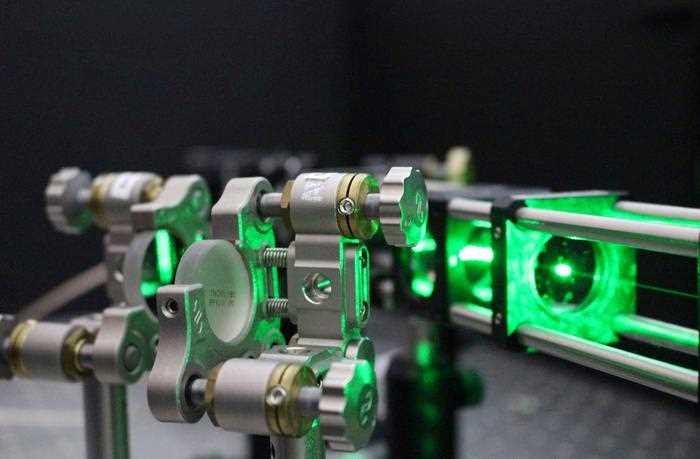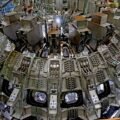An international team of physicists plans to levitate micro diamonds in a vacuum to determine if gravity is quantum in nature.
Scientists have long theorized that gravity itself may be a quantum phenomenon, including general relativity Albert Einstein, but testing the idea in any practical way has remained elusive until now.
If successful, the experiments would not only affirm some of the theories proposing the quantum nature of gravity but could also finally unify general relativity with theories of quantum mechanics.
Unifying General Relativity with Quantum Mechanics Has Proven Elusive
“General relativity and quantum mechanics are the two most fundamental descriptions of nature we have,” explains the press release announcing the new experiments. “General relativity explains gravity on large scales while quantum mechanics explains the behaviour of atoms and molecules.”
Unfortunately, scientists have been unable to “unify” the two theories into one overarching explanation of how the matter and energy within our universe work. That’s mainly because designing experiments to test whether gravity is quantum has proven impractical.
Now, an international team of researchers says they believe potentially groundbreaking experiments designed to answer this question once and for all are finally within reach. The secret, they suggest, lies in the mysteries of quantum entanglement and a rather unfortunate theoretical feline.
Schrödinger’s Cat and Quantum Entanglement
In an attempt to explain the problems with the idea of quantum superposition, where a particle can essentially be in two places and in two different states at once, early 20th-century physicist Erwin Schrödinger laid out a basic thought experiment. In short, a cat in a box can be thought of as both alive and dead since the timing of a decaying isotope that will eventually seal its demise cannot be perfectly predicted.
“Schrödinger’s cat is a thought experiment pointing out that it would be really weird if everyday objects (and pets!) could be in a quantum superposition of being in two places at once,” explains Principal Investigator Professor Gavin Morley from the Department of Physics at the University of Warwick. “We want to test the limits of this idea.”
As Morley points out, previous experiments have successfully placed small amounts of atoms and molecules into a superposition state. However, those efforts have involved too few particles to determine whether or not gravity is quantum since the effects of gravity are too weak to be measured at this scale.
To solve this problem, Morley and his team plan to entangle microdiamonds made up of one billion atoms or more. This should be sufficient enough mass, they propose, that they should be able to measure the effects of gravity on each entangled diamond. And, if gravity is quantum in nature, they should also see these effects “transferred” from one entangled micro diamond to the other via superposition.
“If gravity is quantum, then it would be able to entangle the two diamonds,” Morley explains.
“Entanglement is a unique quantum effect where two things are linked more strongly than is possible in our everyday life,” Morley said when explaining the idea. “For example, if two coins could be entangled, then you might find that whenever you flip them, they both land the same way up even if it’s impossible to know in advance if they will both be heads or both tails.”
Overcoming Many Challenges to Determine if Gravity is Quantum
The researchers behind this latest effort to understand the nature of gravity admit it is an incredibly difficult task that includes a number of hurdles they will need to overcome. For example, explains fellow investigator Dr. David Moore from Yale University, his team will “need to eliminate all interactions between the nanoparticles other than gravity.” Such a task is incredibly difficult, Moore explains, “since gravity is so weak.”
One thing working in the team’s favor is the low-energy nature of their experiments. According to Professor Sougato Bose from University College London, that’s because others studying theories of quantum gravity have focused on high-energy environments “near black holes and at the big bang.” In contrast, he says that if successful, their experiments “can be regarded as the verification of a generic prediction of any quantum theory of gravity at low energies.”
Ultimately, the team believes the technology has finally evolved enough to perform these delicate and intricate experiments. Depending on the results, they may end up answering one of the most important questions in all of science: whether or not gravity is quantum in nature.
“For me, the most important problem in physics right now is to develop an experiment that can test the quantum nature of gravity,” said Morley. “This new project is an acceleration in our exciting journey towards this.”
Christopher Plain is a Science Fiction and Fantasy novelist and Head Science Writer at The Debrief. Follow and connect with him on X, learn about his books at plainfiction.com, or email him directly at christopher@thedebrief.org.

